What is vaginitis?
Vaginitis is a term used to describe conditions that cause irritation, inflammation or infection of the vagina, which can affect women throughout their lives. Vaginitis symptoms, including itching, burning, painful urination, vaginal discharge and pain during sex (dyspareunia).
You shouldn’t feel embarrassed about discussing these symptoms with your provider. Vaginitis is very common, and there are many options for treating it.
What are the different types of vaginitis?
There are many different types of vaginitis. The most common include bacterial vaginosis, yeast infections, trichomoniasis, non-infectious vaginitis and vaginal atrophy. You can also get vaginitis from an allergic reaction to perfumed soaps, laundry detergents and even your partner’s semen.
Bacterial vaginosis (BV)
The most common form of vaginitis in women ages 15 to 44, bacterial vaginosis (BV) is an imbalance of good and bad bacteria in the vagina. Although you can develop bacterial vaginosis for unknown reasons, it can be caused by sexual contact, douching and using vaginal deodorants, all of which can change your vagina’s bacterial balance. It’s also common during pregnancy.
Bacterial vaginosis doesn’t always cause symptoms, but when it does, you may notice:
- Burning when you urinate
- Grayish-white, unpleasant-smelling discharge
- Itching in or outside your vagina
Bacterial vaginosis is not a sexually transmitted infection, but it can increase your chances of getting one. In pregnant women, it can increase the risk of early delivery or of having a low-birth-weight baby, so never hesitate to see your doctor if you think you may have it.
Vaginal yeast infections
Vaginal yeast infections are fungal infections caused by a type of yeast called candida. Your vagina has naturally low levels of candida all the time, but certain things, such as changes in hormone levels (related to your period or birth control), antibiotics, sex, diabetes and pregnancy, can cause candida to multiply and cause a yeast infection.
Symptoms of yeast infections include:
- Burning and itching outside your vagina
- Pain during sex
- Pain or stinging when you urinate
- A red or swollen vulva
- Thick, white vaginal discharge
Trichomoniasis
Trichomoniasis is a common sexually transmitted infection caused by a parasite called trichomonas vaginalis. This infection primarily affects the urogenital tract, including the vagina, urethra and bladder in women, and the urethra in men. Trichomoniasis can be diagnosed through laboratory tests and is typically treated with antibiotics.
Trichomoniasis doesn’t usually cause symptoms for men. In women, common symptoms of trichomoniasis include:
- Itching or burning
- Pain when you urinate
- Greenish-yellow vaginal discharge
- Discomfort or pain during sex
Non-infectious vaginitis
Non-infectious vaginitis is a type of vaginal irritation or inflammation that occurs without the presence of an infection. Common causes of non-infectious vaginitis include an allergic reaction or irritation from vaginal sprays, douches or spermicide products. It can also be caused by sensitivity to fragrances in detergents, soaps or fabric softeners.
Hormonal imbalances or hormonal changes during menopause, pregnancy or birth control use can also lead to vaginal dryness and irritation, causing non-infectious vaginitis to occur.
Symptoms of non-infectious vaginitis include:
- Itching or burning
- Redness
- Unusual vaginal discharge
- Discomfort or pain when you urinate
- Discomfort or pain during sex
Vaginal atrophy
Vaginal atrophy (also called atrophic vaginitis) is a condition where the tissue in your vagina becomes dry, thin and less elastic. These changes occur because of dropping estrogen levels. Estrogen keeps your vagina and genitals healthy and lubricated, and lack of estrogen can cause your vaginal tissue to become inflamed, which, in turn, can cause the following symptoms:
- Bleeding after you have sex
- Dryness
- Itching or burning
- Pain during sex
Vaginal atrophy is often associated with menopause. It primarily occurs during perimenopause and postmenopause, whether naturally or surgically induced by the removal of the ovaries. However, breastfeeding and taking medications for certain conditions, such as endometriosis, can also lead to declining estrogen levels and vaginal atrophy.
Vaginitis symptoms
Symptoms of vaginitis vary according to the type you have, and some may not cause any symptoms at all. Keep in mind it’s also possible to have more than one type of vaginitis at the same time.
Common vaginitis symptoms include:
- Changes in color, texture or smell of your vaginal discharge
- Vaginal itching, irritation or swelling
- Discomfort or pain when you urinate
- Frequent urination
- Discomfort or pain during sex or when inserting tampons
- Light vaginal bleeding not related to your period
When to see a doctor
All forms of vaginitis can be treated, so visit your doctor as soon as you experience symptoms. Treating these conditions means you can find relief from your symptoms, and it can prevent the conditions from coming back or from causing complications if you’re pregnant.
What causes vaginitis?
The causes of vaginitis vary depending on the specific type you have. The most common causes of vaginitis include:
- Infections: Sexually transmitted infections occur when parasites, bacteria and viruses that cause infection spread through sexual contact. These infections can cause vaginitis.
- Lack of estrogen: Low estrogen levels, most commonly caused by breastfeeding, menopause or removal of the ovaries, can cause vaginal atrophy, a form of vaginitis.
- Vaginal sex: Sexual activity can cause vaginitis by leading to changes in the balance of yeast and bacteria in your vagina. It’s also possible to have an allergic reaction to your partner’s semen or to experience irritation from friction, lubricants or condoms.
- Allergies and irritants: Chemical irritants and fragrances in personal hygiene products like soaps, detergents and fabric softeners can cause vaginitis, as can spermicides.
- Change in hormone levels: During hormonal transitions like pregnancy, breastfeeding and menopause, changes in your body’s hormone levels can cause changes to your vagina that make vaginitis more likely to occur.
How is vaginitis diagnosed?
Your provider will take a thorough medical history, perform a physical exam and perform a pelvic exam. Be sure to inform them of any history of STIs.
During the pelvic exam, your provider may swab the inside of your vagina to collect a sample of discharge, which will be sent to a lab for infection testing. Additionally, your provider may check the pH levels of your vaginal fluid to aid in the diagnosis.
Some providers may ask you to avoid sex or inserting anything into your vagina for at least 24 hours before your appointment.
Vaginitis treatment
Many women can find relief from vaginitis with over-the-counter products, antibiotics and other therapies.
Bacterial vaginosis
Your provider can treat bacterial vaginosis with antibiotics or topical treatments applied directly to your vagina. For recurrent cases, discuss probiotics with your provider to help maintain a healthy bacterial balance.
Vaginal yeast infection
You can often treat a vaginal yeast infection with over-the-counter antifungal creams, tablets or suppositories.
Consult your provider before use to ensure correct diagnosis, as these products may not be effective for conditions like bacterial vaginosis. If you have more than four infections a year or if over-the-counter treatments are ineffective, your provider can prescribe regular antifungal medication for candida overgrowth.
Trichomoniasis
Trichomoniasis is usually treated with a prescription antibiotic like metronidazole or tinidazole. Your provider may prescribe a single oral dose or recommend you continue the antibiotic over the course of several days, depending on the severity of the infection.
Non-infectious vaginitis
Treatment for non-infectious vaginitis focuses on determining and addressing the source of the irritation. For vaginitis triggered by an irritant such as soap or perfumed personal care products, switching to a hypoallergenic or fragrance-free option can help. If the vaginitis is related to hormonal changes, your provider may recommend a topical estrogen cream to relieve dryness. Maintaining proper vaginal hygiene without over-washing or using harsh chemicals can help relieve dryness or irritation due to non-infectious vaginitis, as can using moisturizers or lubricants.
Vaginal atrophy
Vaginal atrophy can be treated, so discuss your symptoms with your provider. Treatments include lubricants and moisturizers to ease dryness, itching and burning; hormone replacement therapy (HRT) to address symptoms related to declining estrogen levels; and low-dose estrogen therapy through vaginal creams, tablets or rings, which may be more effective than HRT. Regular sex can also help prevent vaginal tissue from becoming thin and dry, reducing symptoms.
How can I prevent vaginitis?
There are many ways to prevent bacterial vaginosis and yeast infections.
- Wear dry, breathable clothing: Yeast can grow in warm, damp environments. Cotton underwear and loose-fitting clothing help keep you dry and cool, so opt for those over synthetic underwear and tight pants. Also, change out of sweaty or wet clothing, such as bathing suits, as soon as possible.
- Be selective with your personal care products: Avoid using scented tampons, pads, vaginal deodorants and perfumed feminine hygiene products. Stop using perfumed bath products, laundry items or scented/colored toilet paper if they irritate your skin. Consult your doctor if you're concerned about vaginal odor.
- Don’t douche: Avoid douching, as it can disrupt the healthy balance of bacteria in your vagina and lead to infection. Additionally, douching can mask an existing infection.
- Ask your provider about the benefits of taking hormones: If you’re approaching menopause or have low estrogen levels, ask your provider about the benefits of using vaginal hormone pills or creams to keep your vagina lubricated and healthy.
- Get regular screenings: Maintaining good health habits is important. Have regular gynecologic exams, including pap smears for cervical cancer, as recommended by your provider. If you have multiple sexual partners, request STI screenings.
Find specialized care for vaginitis
We help you get care at a location that fits your needs. We offer several locations for your care, including specialized women’s health centers in North and Central Texas.

Baylor Scott & White Medical Center - McKinney
5252 W University Dr Highway 380 at Lake Forest Drive, McKinney, TX, 75071

Baylor Scott & White Obstetrics & Gynecology - Rockwall
1005 W Ralph Hall Pkwy Ste 115, Rockwall, TX, 75032
- Monday: 8:00 am - 5:00 pm
- Tuesday: 8:00 am - 5:00 pm
- Wednesday: 8:00 am - 5:00 pm
- Thursday: 8:00 am - 5:00 pm
- Friday: 8:00 am - 5:00 pm

Baylor Scott & White Obstetrics & Gynecology - Rowlett
9500 Lakeview Pkwy Ste 100, Rowlett, TX, 75088
- Monday: 8:00 am - 5:00 pm
- Tuesday: 8:00 am - 5:00 pm
- Wednesday: 8:00 am - 5:00 pm
- Thursday: 8:00 am - 5:00 pm
- Friday: 8:00 am - 5:00 pm

Baylor Scott & White Medical Center - Lake Pointe
6800 Scenic Dr , Rowlett, TX, 75088
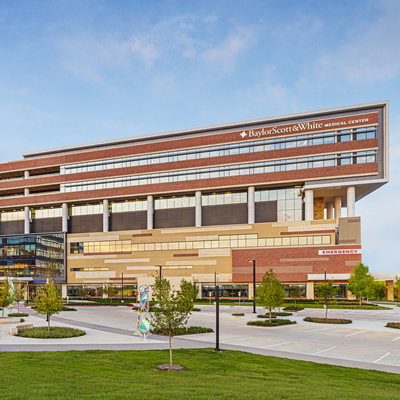
Baylor Scott & White Obstetrics & Gynecology - Frisco at PGA Parkway
16050 Everwell Ln Professional Pavilion I, Ste 200, Frisco, TX, 75033
- Monday: 8:00 am - 4:45 pm
- Tuesday: 8:00 am - 4:45 pm
- Wednesday: 8:00 am - 4:45 pm
- Thursday: 8:00 am - 4:45 pm
- Friday: 8:00 am - 4:30 pm
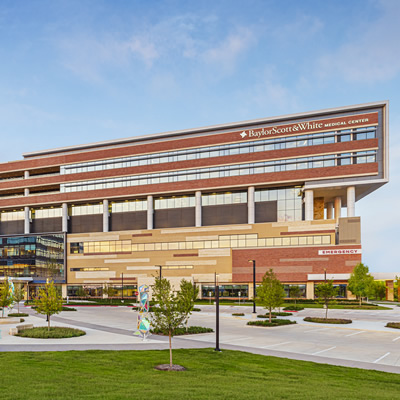
Baylor Scott & White Medical Center - Frisco at PGA Parkway
7600 Better Way , Frisco, TX, 75033
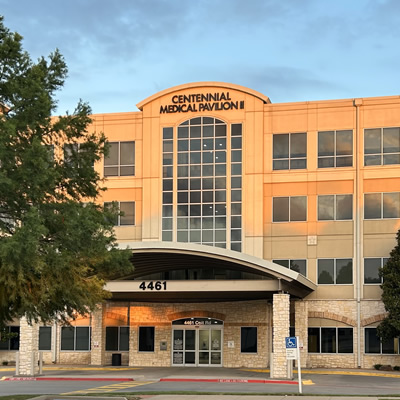
Baylor Scott & White Obstetrics & Gynecology - Frisco
4461 Coit Rd Ste 205, Frisco, TX, 75035
- Monday: 8:00 am - 4:45 pm
- Tuesday: 8:00 am - 4:45 pm
- Wednesday: 8:00 am - 4:45 pm
- Thursday: 8:00 am - 4:45 pm
- Friday: 8:00 am - 4:30 pm

Baylor Scott & White Medical Center - Centennial
12505 Lebanon Rd , Frisco, TX, 75035

Baylor Scott & White Surgicare - Garland
530 Clara Barton Blvd Ste 100, Garland, TX, 75042
- Monday: 6:00 am - 5:00 pm
- Tuesday: 6:00 am - 5:00 pm
- Wednesday: 6:00 am - 5:00 pm
- Thursday: 6:00 am - 5:00 pm
- Friday: 6:00 am - 5:00 pm

Baylor Scott & White Medical Center - Frisco
5601 Warren Pkwy , Frisco, TX, 75034

Baylor Scott & White Medical Center - Plano
4700 Alliance Blvd , Plano, TX, 75093

Baylor Scott & White Park Lane OB/GYN Associates
9101 N Central Expy Ste 250, Dallas, TX, 75231
- Monday: 8:00 am - 4:30 pm
- Tuesday: 8:00 am - 4:30 pm
- Wednesday: 8:00 am - 4:30 pm
- Thursday: 8:00 am - 4:30 pm
- Friday: 8:00 am - 4:30 pm

Baylor Scott & White Surgicare - Dallas
4020 Junius St , Dallas, TX, 75246
- Monday: 6:00 am - 5:00 pm
- Tuesday: 6:00 am - 5:00 pm
- Wednesday: 6:00 am - 5:00 pm
- Thursday: 6:00 am - 5:00 pm
- Friday: 6:00 am - 5:00 pm
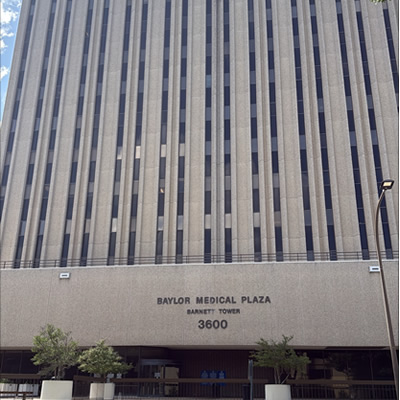
Baylor Scott & White Women's Health Group
3600 Gaston Ave Wadley Tower, Ste 1158, Dallas, TX, 75246
- Monday: 9:00 am - 5:00 pm
- Tuesday: 9:00 am - 5:00 pm
- Wednesday: 9:00 am - 5:00 pm
- Thursday: 9:00 am - 5:00 pm
- Friday: 9:00 am - 4:30 pm

Baylor University Medical Center, part of Baylor Scott & White Health
3500 Gaston Ave , Dallas, TX, 75246

Baylor Scott & White Medical Center - Irving
1901 N MacArthur Blvd , Irving, TX, 75061

Baylor Scott & White Medical Center - Grapevine
1650 W College St , Grapevine, TX, 76051

Baylor Scott & White Obstetrics & Gynecology - Grapevine
1631 Lancaster Dr Ste 370, Grapevine, TX, 76051
- Monday: 8:00 am - 5:00 pm
- Tuesday: 8:00 am - 5:00 pm
- Wednesday: 8:00 am - 5:00 pm
- Thursday: 8:00 am - 5:00 pm
- Friday: 8:00 am - 5:00 pm

Baylor Scott & White Women’s Health Specialists - Waxahachie
2460 N Interstate 35E Ste 165, Waxahachie, TX, 75165
- Monday: 8:00 am - 5:00 pm
- Tuesday: 8:00 am - 5:00 pm
- Wednesday: 8:00 am - 5:00 pm
- Thursday: 8:00 am - 5:00 pm
- Friday: 8:00 am - 5:00 pm

Baylor Scott & White Obstetrics & Gynecology - Waxahachie
2460 N Interstate 35E Ste 225, Waxahachie, TX, 75165
- Monday: 9:00 am - 4:30 pm
- Tuesday: 9:00 am - 4:30 pm
- Wednesday: 9:00 am - 4:30 pm
- Thursday: 9:00 am - 4:30 pm
- Friday: 9:00 am - 4:30 pm

Baylor Scott & White Medical Center - Waxahachie
2400 N Interstate 35E , Waxahachie, TX, 75165

Baylor Scott & White All Saints Medical Center - Fort Worth
1400 8th Ave , Fort Worth, TX, 76104

Baylor Scott & White Medical Center - Hillcrest
100 Hillcrest Medical Blvd , Waco, TX, 76712

Baylor Scott & White OB/GYN Clinic - Waco
120 Hillcrest Medical Blvd Office Building 2, Ste 201-2, Waco, TX, 76712
- Monday: 8:00 am - 5:00 pm
- Tuesday: 8:00 am - 5:00 pm
- Wednesday: 8:00 am - 5:00 pm
- Thursday: 8:00 am - 5:00 pm
- Friday: 8:00 am - 5:00 pm

Baylor Scott & White Clinic - College Station Rock Prairie
800 Scott and White Dr , College Station, TX, 77845
- Monday: 7:30 am - 5:00 pm
- Tuesday: 7:30 am - 5:00 pm
- Wednesday: 7:30 am - 5:00 pm
- Thursday: 7:30 am - 5:00 pm
- Friday: 7:30 am - 5:00 pm

Baylor Scott & White Medical Center - College Station
700 Scott and White Dr , College Station, TX, 77845
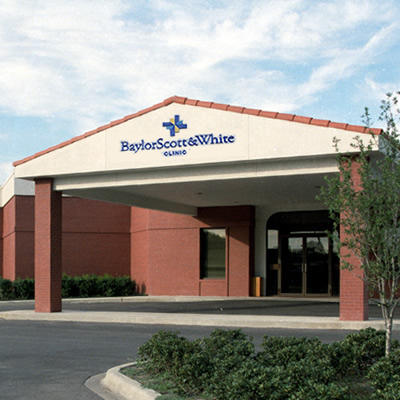
Baylor Scott & White Clinic - Santa Fe
1402 W Ave H , Temple, TX, 76504
- Monday: 8:00 am - 5:00 pm
- Tuesday: 8:00 am - 5:00 pm
- Wednesday: 8:00 am - 5:00 pm
- Thursday: 8:00 am - 5:00 pm
- Friday: 8:00 am - 5:00 pm
- Monday: 7:00 am - 4:30 pm
- Tuesday: 7:00 am - 4:30 pm
- Wednesday: 7:00 am - 4:30 pm
- Thursday: 7:00 am - 4:30 pm
- Friday: 7:00 am - 4:30 pm

Baylor Scott & White Medical Center - Temple
2401 S 31st St , Temple, TX, 76508
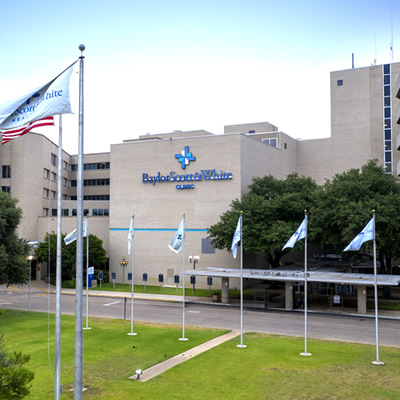
Baylor Scott & White Clinic - Temple
2401 S 31st St , Temple, TX, 76508
- Monday: 8:00 am - 5:00 pm
- Tuesday: 8:00 am - 5:00 pm
- Wednesday: 8:00 am - 5:00 pm
- Thursday: 8:00 am - 5:00 pm
- Friday: 8:00 am - 5:00 pm
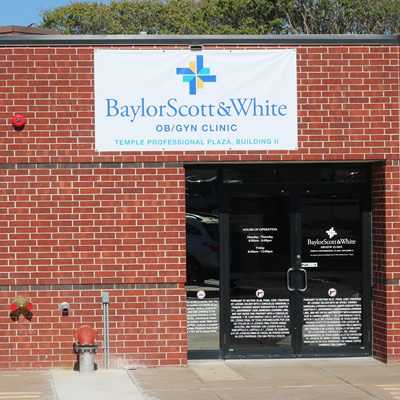
Baylor Scott & White Clinic - Temple Professional Plaza II
1713 SW H K Dodgen Loop Bldg II, Ste 100, Temple, TX, 76502
- Monday: 8:00 am - 6:00 pm
- Tuesday: 8:00 am - 6:00 pm
- Wednesday: 8:00 am - 6:00 pm
- Thursday: 8:00 am - 6:00 pm
- Friday: 8:00 am - 12:00 pm

Baylor Scott & White Medical Center - Brenham
700 Medical Pkwy , Brenham, TX, 77833

Baylor Scott & White Clinic - Brenham Hwy 290
604 US 290 , Brenham, TX, 77833
- Monday: 7:00 am - 5:00 pm
- Tuesday: 7:00 am - 5:00 pm
- Wednesday: 7:00 am - 5:00 pm
- Thursday: 7:00 am - 7:00 pm
- Friday: 7:00 am - 5:00 pm
- Saturday: 8:00 am - 12:00 pm

Baylor Scott & White Specialty Clinic - Salado
213 Millcreek Dr Ste 190, Salado, TX, 76571
- Monday: 8:00 am - 5:00 pm
- Tuesday: 8:00 am - 5:00 pm
- Wednesday: 8:00 am - 5:00 pm
- Thursday: 8:00 am - 5:00 pm
- Friday: 8:00 am - 5:00 pm

Baylor Scott & White Specialty Clinic - Harker Heights
907 Mountain Lion Cir , Harker Heights, TX, 76548
- Monday: 8:00 am - 5:00 pm
- Tuesday: 8:00 am - 5:00 pm
- Wednesday: 8:00 am - 5:00 pm
- Thursday: 8:00 am - 5:00 pm
- Friday: 8:00 am - 5:00 pm

Baylor Scott & White Specialty Clinic - Killeen Hemingway
2405 S Clear Creek Rd , Killeen, TX, 76549
- Monday: 8:00 am - 5:00 pm
- Tuesday: 8:00 am - 5:00 pm
- Wednesday: 8:00 am - 5:00 pm
- Thursday: 8:00 am - 5:00 pm
- Friday: 8:00 am - 5:00 pm
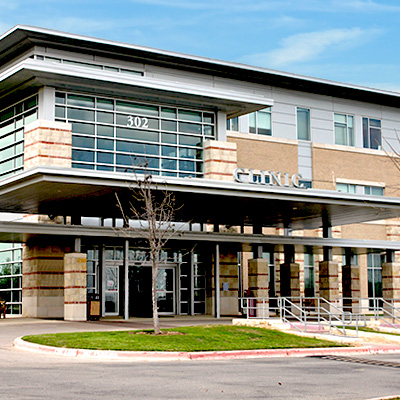
Baylor Scott & White Clinic - Round Rock 302 University
302 University Blvd , Round Rock, TX, 78665
- Monday: 8:00 am - 5:00 pm
- Tuesday: 8:00 am - 5:00 pm
- Wednesday: 8:00 am - 5:00 pm
- Thursday: 8:00 am - 5:00 pm
- Friday: 8:00 am - 5:00 pm

Baylor Scott & White Medical Center - Round Rock
300 University Blvd , Round Rock, TX, 78665
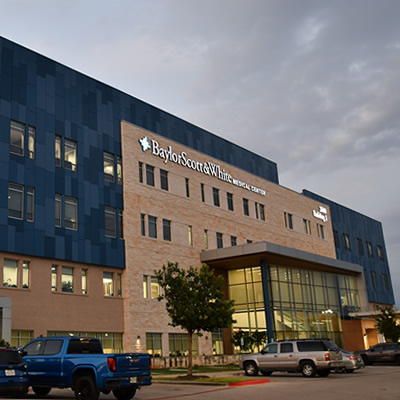
Baylor Scott & White Clinic - Pflugerville Medical Center (Building 1)
2600 E Pflugerville Pkwy Bldg 1, Ste 200, Pflugerville, TX, 78660
- Monday: 8:00 am - 5:00 pm
- Tuesday: 8:00 am - 5:00 pm
- Wednesday: 8:00 am - 5:00 pm
- Thursday: 8:00 am - 5:00 pm
- Friday: 8:00 am - 5:00 pm
- Monday: 7:30 am - 4:00 pm
- Tuesday: 7:30 am - 4:00 pm
- Wednesday: 7:30 am - 4:00 pm
- Thursday: 7:30 am - 4:00 pm
- Friday: 7:30 am - 4:00 pm
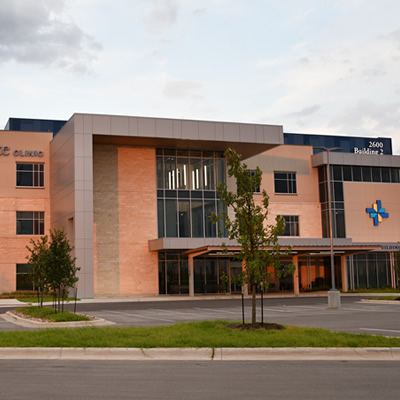
Baylor Scott & White Clinic - Pflugerville Medical Center Building 2
2600 E Pflugerville Pkwy Building 2, Pflugerville, TX, 78660
- Monday: 8:00 am - 5:00 pm
- Tuesday: 8:00 am - 5:00 pm
- Wednesday: 8:00 am - 5:00 pm
- Thursday: 8:00 am - 5:00 pm
- Friday: 8:00 am - 5:00 pm
- Monday: 8:00 am - 4:00 pm
- Tuesday: 8:00 am - 4:00 pm
- Wednesday: 8:00 am - 4:00 pm
- Thursday: 8:00 am - 4:00 pm
- Friday: 8:00 am - 4:00 pm
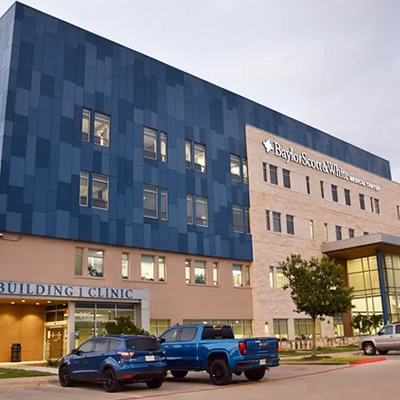
Baylor Scott & White Medical Center - Pflugerville (Building 1)
2600 E Pflugerville Pkwy Bldg 1, Ste 100, Pflugerville, TX, 78660

Baylor Scott & White Clinic - Cedar Park
910 E Whitestone Blvd , Cedar Park, TX, 78613
- Monday: 8:00 am - 5:00 pm
- Tuesday: 8:00 am - 5:00 pm
- Wednesday: 8:00 am - 5:00 pm
- Thursday: 8:00 am - 5:00 pm
- Friday: 8:00 am - 5:00 pm
- Monday: 7:00 am - 5:00 pm
- Tuesday: 7:00 am - 5:00 pm
- Wednesday: 7:00 am - 5:00 pm
- Thursday: 7:00 am - 5:00 pm
- Friday: 7:00 am - 5:00 pm
- Saturday: 9:00 am - 2:00 pm

Baylor Scott & White Clinic - Austin North Burnet
2608 Brockton Dr , Austin, TX, 78758
- Monday: 8:00 am - 5:00 pm
- Tuesday: 8:00 am - 5:00 pm
- Wednesday: 8:00 am - 5:00 pm
- Thursday: 8:00 am - 5:00 pm
- Friday: 8:00 am - 5:00 pm

Baylor Scott & White Medical Center - Austin
5245 W US Hwy 290 Service Rd , Austin, TX, 78735

Baylor Scott & White Medical Center - Lakeway
100 Medical Pkwy , Lakeway, TX, 78738
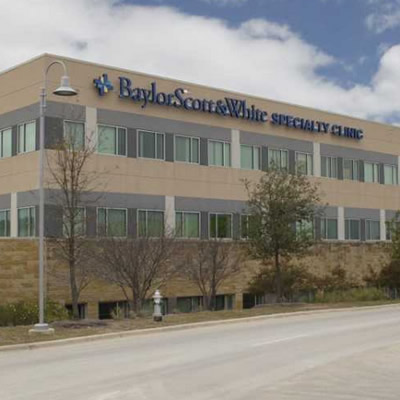
Baylor Scott & White Specialty Clinic - Lakeway
200 Medical Pkwy , Lakeway, TX, 78738
- Monday: 8:00 am - 5:00 pm
- Tuesday: 8:00 am - 5:00 pm
- Wednesday: 8:00 am - 5:00 pm
- Thursday: 8:00 am - 5:00 pm
- Friday: 8:00 am - 5:00 pm

Baylor Scott & White Medical Center - Buda
5330 Overpass Rd , Buda, TX, 78610

Baylor Scott & White Specialty Clinic - Marble Falls
800 W State Hwy 71 , Marble Falls, TX, 78654
- Monday: 8:00 am - 5:30 pm
- Tuesday: 8:00 am - 5:30 pm
- Wednesday: 8:00 am - 5:30 pm
- Thursday: 8:00 am - 5:30 pm
- Friday: 8:00 am - 5:30 pm

Baylor Scott & White Medical Center - Marble Falls
810 W State Hwy 71 , Marble Falls, TX, 78654
How we reviewed this page
-
March 20, 2025
